International
Spain reduces the escalation of tension with Caracas in the midst of the diplomatic crisis
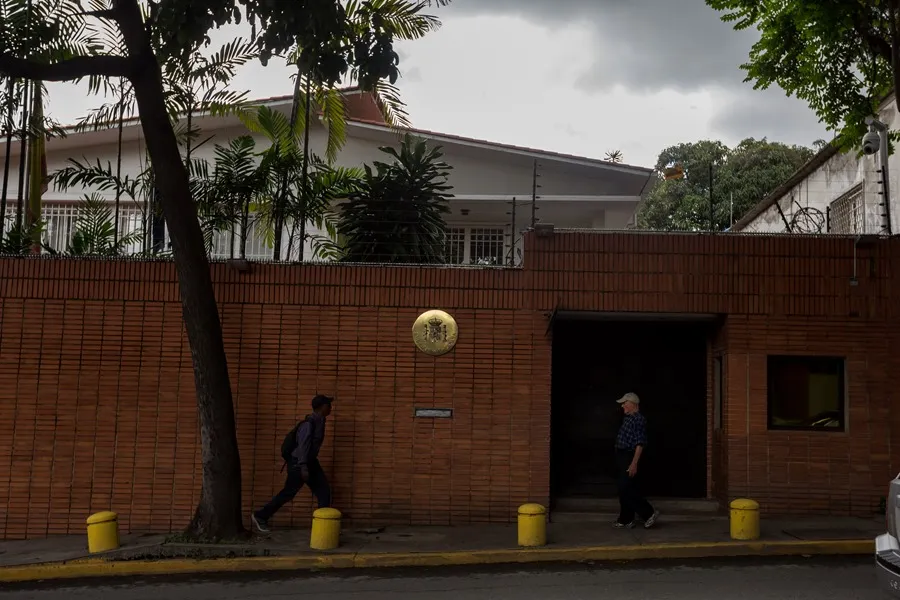
The Spanish Government chose this Friday to lower the escalation of tension between Caracas and Madrid and described as “sovereign” the decision of Venezuelan President Nicolás Maduro to summon the Spanish ambassador to the country and call his representative in the Spanish capital for consultations.
“Convening an ambassador and calling for consultations are sovereign decisions of each State and therefore, there is nothing to comment on,” said the Spanish Minister of Foreign Affairs, José Manuel Albares, in an interview with the public broadcaster Radio Nacional.
Albares thus responded to Maduro’s decision to call his ambassador in Spain, Gladys Gutiérrez, for consultations and summon the Spanish ambassador in Caracas, Ramón Santos, for what he considers “insolent, interent and rude statements” made by the Spanish Minister of Defense, Margarita Robles.
The PP calls for the withdrawal of the Spanish ambassador in Caracas
On Thursday, Robles described the government of Nicolás Maduro as a “dictatorship” and referred to Venezuelans who have left their country as “victims of restriction, violence, lack of democracy and lack of freedom.”
Comments on which the Spanish Government has not spoken out, but which have been applauded by the right because they are “the pure truth,” in the words of the leader of the conservative Popular Party Esteban González Pons, who has come to ask for the withdrawal of the Spanish ambassador in Caracas.
The head of Spanish diplomacy insisted on the will of the Executive to seek “the best possible relations with the brotherly people of Venezuela” and to ensure the interests of the community and national companies in the South American country.
A message of tranquility to which the Minister of Economy, Carlos Cuerpo, joined, who guaranteed that the Spanish Government “will defend its interests in case this were necessary.”
Venezuelan opposition leader Juan Pablo García was also convinced, in statements to EFE, that the crisis will not worsen because “the Maduro regime is not interested in breaking relations with Spain or Spain with Venezuela.”
“The diplomatic crisis is nothing more than a way to divert attention from what is really important, that is, the need for Spain to recognize Edmundo González as elected president,” said García, a member of the leadership of the Vente Venezuela (VV) movement.
Spain and the EU insist on the election minutes
The escalation of tension between Caracas and Madrid comes after the President of the Spanish Government, Pedro Sánchez, received on Thursday the flag bearer of the Venezuelan opposition Edmundo González Urrutia, who has asked for political asylum in Spain.
Sánchez will not recognize, for the moment, González Urrutia as elected president of Venezuela, as requested by the Spanish Congress, which this week approved the proposal at the request of the conservative Popular Party, the far right and nationalist groups.
Aligned with Brussels, Sánchez insists that Maduro must show the minutes of the July 28 elections that, according to the Venezuelan opposition, accredit the defeat of Chavismo.
At a press conference in Madrid, the high representative for EU Foreign Policy, the Spaniard Josep Borrell, recalled that the community bloc cannot recognize Governments or States because it is a power of the Member States, but what it can do is “recognize the democratic legitimacy of those who hold power, territorial control, the army, the police …”.
That control, “in fact, was Maduro’s before the elections and still Maduro’s after the elections. But we do not consider him a person who can claim democratic legitimacy from the power he holds,” he added.
Venezuela warns that it will not allow “interference”
The Foreign Minister of Venezuela, Yván Gil, told the Spanish ambassador in Caracas that the Caribbean country will not allow “any intervention action by the Government of Spain in matters that are the exclusive competence of Venezuelans.”
“The Government of Venezuela will adopt the necessary measures, within the framework of international law and Bolivarian diplomacy of peace to protect its sovereignty,” says the foreign minister’s note shared on Telegram.
For his part, the former president of Bolivia Evo Morales, an ally of the Maduro government, condemned the pronouncement of the Spanish Parliament that “medles in the internal affairs of Venezuela” and regretted that Spain “becomes a refuge of the Latin American right that continues to conspire against democracies” in the region.
“They have to realize that we are not in Cologne times. Spain does not have the authority to ignore any president,” he wrote on the social network X.
Pressure on Maduro is growing
Since his arrival in Madrid on Sunday, González Urrutia has maintained a low profile, although he has multiplied his political contacts with meetings such as those held this Friday with former presidents Mariano Rajoy (PP) and Felipe González (socialist).
While from the ranks of the Spanish right the pressure increases to act against Maduro: The PP trusts that next week the European Parliament will recognize Edmundo González as the winner of the elections and the far-right Vox asks the Government to seize property of members of the Venezuelan regime of Nicolás Maduro in Spain.
International pressure is growing on Venezuela after the sanctions announced on Thursday by the United States against 16 officials, including members of the Supreme Court of Justice (TSJ), the National Electoral Council (CNE) and Parliament, for “falsely” proclaiming Maduro as the winner of the July elections.
In the same vein, Borrell called for specific sanctions to be applied to Maduro and his inner circle, his families and all those responsible for human rights violations in the country.
International
Government paves the way for ‘Gordo Dan’, from the “armed arm of Milei”, to be a candidate
The head of staff of the Argentine government, Guillermo Francos, said this Friday that the far-right influencer Daniel Parisini, known as ‘Gordo Dan’ on social networks and visible face of the so-called ‘armed arm of Milei’, would be a “good candidate” for the 2025 legislative elections.
Francos’ statements to the Urbana Play radio station come in the midst of controversy over the presentation, last weekend, of the group ‘Fuerzas del Cielo’ by followers of the Argentine president, including Parasini, who described the movement as “the armed arm of Milei.”
“He’s a good candidate. He is a professional, a doctor, he has clarity, positioning him in more extreme positions makes no sense. She is a normal, balanced person, questioning the status quo, who wants Argentina to change, like many people,” Francos said.
‘Forces of Heaven’
Regarding the presentation of the ‘Forces of Heaven’, he indicated that “the impact on that act of a group of militants who decided to work together has been exaggerated” and added: “Who talked about weapons? He referred to the weapons of democracy, the use of the word through the cell phone and Twitter.”
“Today much more sophisticated mechanisms are used, networks are important for the dissemination of political ideas, but from there to interpret that this is a crisis armed with firearms,” he added.
The words of Javier Milei’s chief of staff, more than reassuring, have been interpreted as a way to pave the way for ‘Gordo Dan’ to be a candidate in 2025, according to the country’s media.
Gordo Dan repeats Javier Milei’s slogans
At the presentation of ‘Fuerzas del Cielo’, in the town of Buenos Aires de San Miguel, the speakers presented a fascist scenography, with banners with the legend “Argentina will be the lighthouse that illuminates the world” and allusions to the homeland, private property, freedom and family.
The main speaker was ‘Gordo Dan’, who attacked progressivism and repeated Milei’s slogans.
The newspaper Perfil publishes that Santiago Caputo, Milei’s advisor and strategist of the campaign that led him to victory a year ago, is the “shadowy leader” and Parasini, the visible face and “maximum reference” of the movement.
A group that, apparently, has the approval of Karina, the president’s sister and general secretary of the Presidency.
Neither Caputo nor Karina were at last Saturday’s event, but the far-right ideologue Agustín Laje, a personal friend of the president, was.
Who is Gordo Dan?
Daniel Parisini is a 32-year-old doctor who does not practice, originally from the province of Santiago del Estero (northern Argentina) and a militant since its beginnings of La Libertad Avanza (LLA), the far-right party created by Javier and Karina Milei.
Since Milei is president, the content creator walks around the Casa Rosada, attends official events and even advances dismissals of officials, despite not having a position in the Government.
He is the unofficial spokesperson to move the networks, a ‘troll’ that points to opponents. In his streaming program ‘La Misa’ he makes propaganda to the ‘libertarian’ universe, as he himself describes it, with all kinds of attacks on kirchenism, those who question the ideas of the LLA and feminism.
According to Perfil, Parasini is a partner of Carajo S.A., the company that has created the Carajo channel, from where La Misa is transmitted.
According to the company Rating Streaming, ‘Gordo Dan’ is the most influential in X and makes a big difference to the next most powerful of the networks in Argentina. It has 269,000 followers.
Last August, the Association of Argentine Television and Radio Journalists (APTRA) presented him with the Martín Fierro Digital 2024 award, in the category “the most influential in X”, and in his speech he thanked Alberto Fernández for “destroying Kirchnerism.”
International
The Venezuelan Prosecutor’s Office investigates María Corina Machado for supporting a law approved in the US House of Law
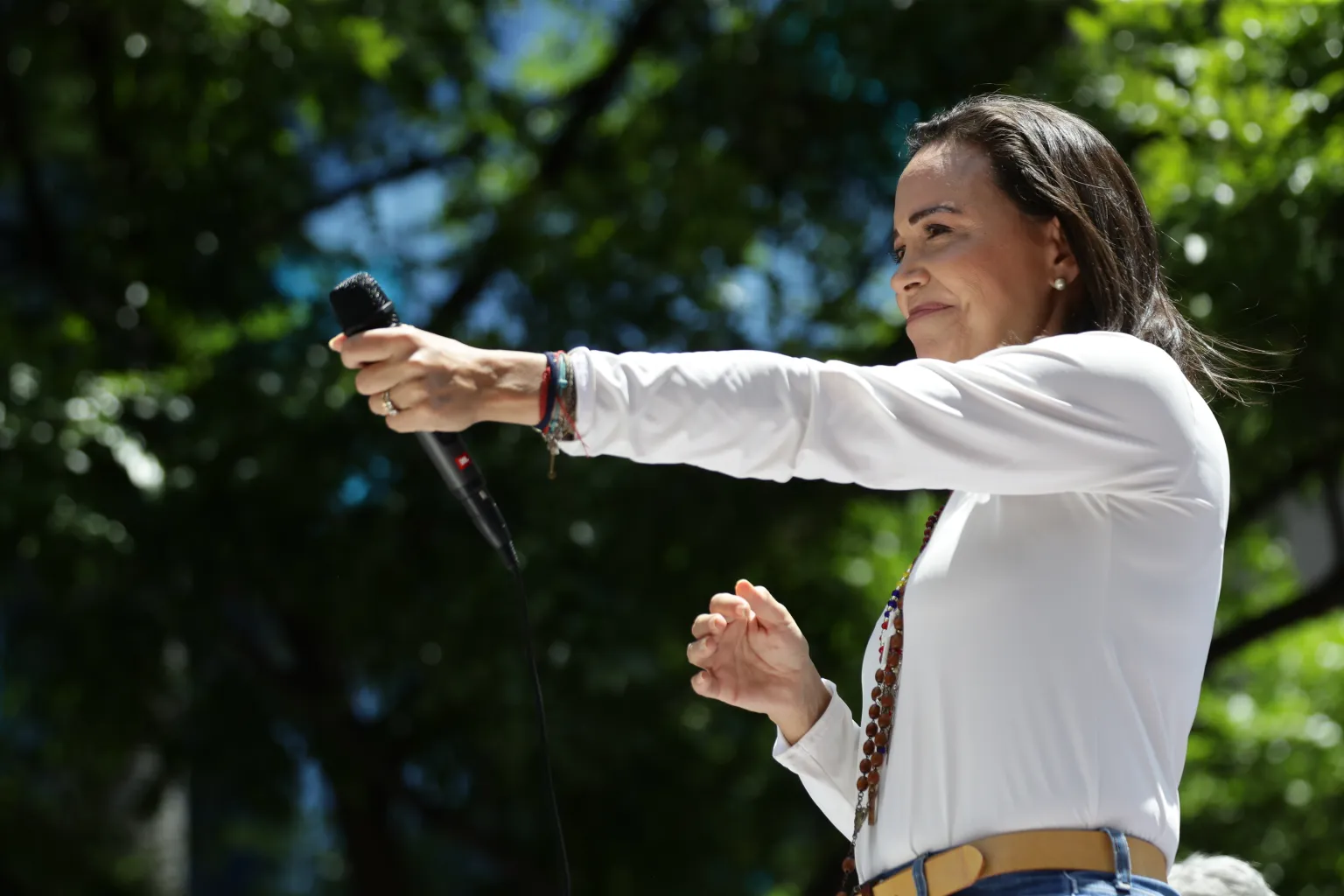
The Venezuelan Prosecutor’s Office announced this Friday the opening of an investigation against the leader of anti-Chavismo María Corina Machado for – she assured – supporting the bill approved in the United States House of Representatives that prohibits US government institutions from hiring people or companies that have commercial ties with the Chavista Executive.
Through a statement published on Instagram, the Public Ministry (MP, Prosecutor’s Office) maintained that it decided to start this investigation against Machado to “be charged with his promotion and support for said legal defense that terrible sponsors criminal acts against the Venezuelan people.”
The crime for which the Prosecutor’s Office is investigating Machado is “treason to the homeland”
The institution maintained that the pronouncements made by Machado in favor of this bill constitute the commission of the crimes of “treason to the homeland”, conspiracy with foreign countries, as well as criminal association.
On Wednesday, Machado foresaw consequences for the government of Nicolás Maduro for this bill.
“The Bolivar law (officially Law of Prohibition of Operations and Leases with the Illegitimate Authoritarian Regime of Venezuela) sends a clear message to the regime: repression and criminal activities have consequences and no one will be able to normalize them,” Machado said through X, although the rule must be approved by the Senate for it to become effective.
Meanwhile, President Nicolás Maduro described the rule as “garbage,” while warning that those opponents who support this bill will be committing crimes, so they will have to comply with “the judicial consequences”, without specifying what they would be.
Perpetual disqualification
On Thursday, the Parliament – controlled by Chavismo – approved the discussion of an organic law that seeks to politically disqualify those who request countries, “terrorist groups or associations,” to impose economic sanctions against the Caribbean nation.
The bill was unanimously approved in the plenary, in which the president of the Chamber, the Chavista Jorge Rodríguez, insisted that the political disqualification must be perpetual.
The Bolivar bill was presented by Florida representatives Mike Waltz, Republican, and Debbie Wasserman Schultz, Democrat, who consider, in the words of the first, that the United States must “maintain the existing sanctions against the regime and seek to expand them to minimize Maduro’s resources to abuse the freedoms and prosperity of the Venezuelan people.”
International
Trump appoints new members to his government cabinet
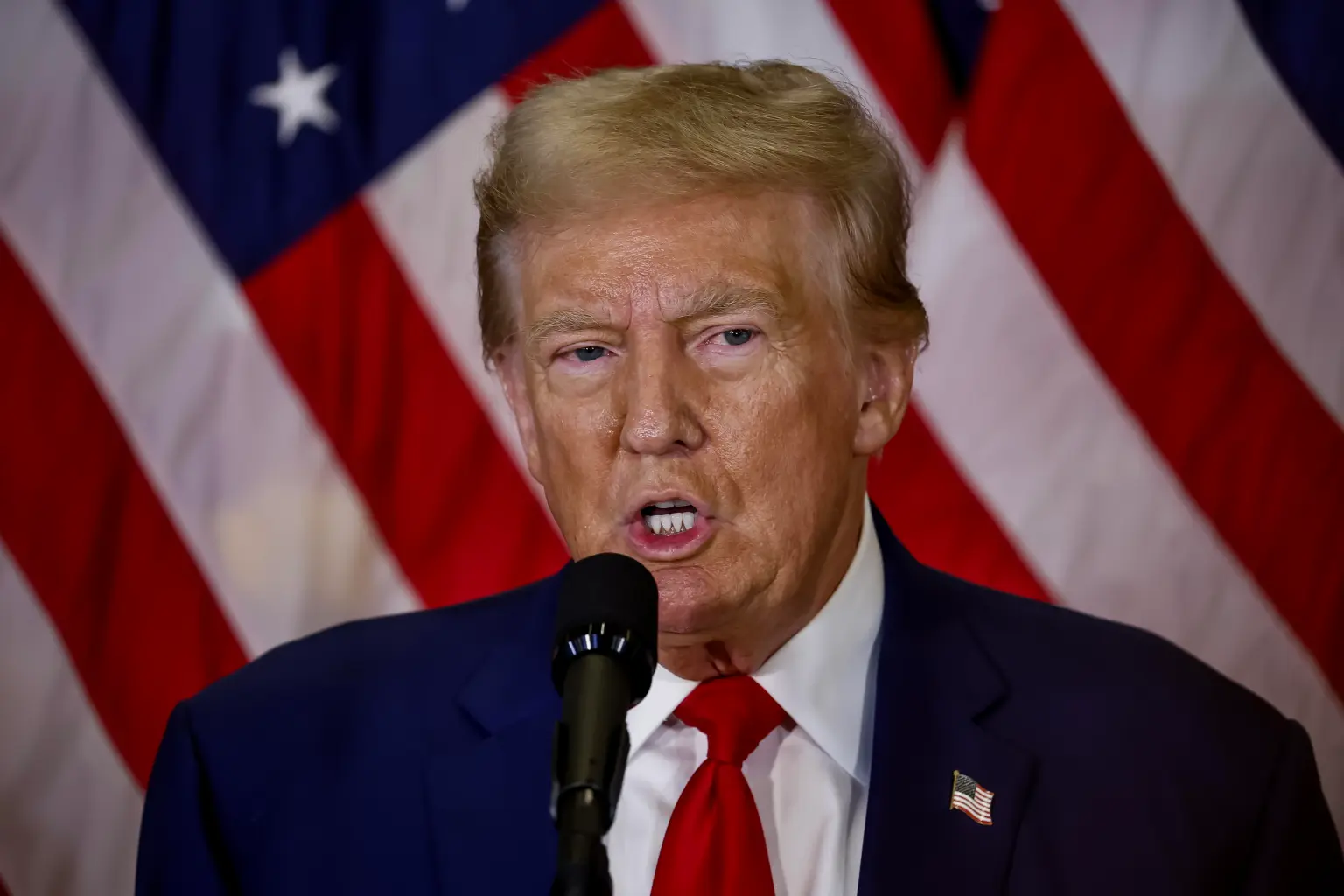
The president-elect of the United States, Donald Trump, announced four new nominations for his government cabinet, some of which will have to be ratified by the US Senate starting January 20, 2025.
The most controversial of them is that of Russell Thurlow Vought, one of the “architectures” of the ultra-conservative government program Project 2025, to be at the head of the Office of Management and Budget of his future Administration.
Vought, 48, was already in charge of that same portfolio during part of Trump’s first term (2017-2021).
“He did an excellent job: we removed four regulations for each new regulation, and it was a great success!” he said in a statement from his transition team.
A “cost reducer” in the cabinet
Trump recalled that Vought has spent many years working on public policies in Washington and is an “aggressive cost reducer and deregulator” who will help his government cabinet implement his “United States first” agenda in all agencies.
“He knows exactly how to dismantle the deep State (…) and will help us return self-government to the people,” added the future president about his chosen one.
An ex-NFL to Urban Planning and Housing
He also nominated in the Urban Planning and Housing portfolio of his future Administration the former American football player Scott Turner, who spent nine seasons in the National League of American Football (NFL) with the Washington Redskins, the San Diego Chargers and the Denver Broncos.
During Trump’s first term (2017-2021) Turner served as the first executive director of the White House’s revitalization and opportunity office, dedicated to the most needy communities.
According to the statement of the transition team, these areas received thanks to their work about 50 billion dollars (about 48 billion euros) in private investment.
Trump also pointed out that Turner, originally from Texas, is a pastor at the Prestonwood Baptist Church.
“He will work with me to make the United States great again for EVERY American,” said the New York tycoon, who also congratulated the appointment of the woman and the son of his chosen one.
The Work portfolio at the hands of a Latina
On the other hand, the congresswoman of Latin origin Lori Chavez-DeRemer will be his next Secretary of Labor.
“He has worked tirelessly with the business and labor sector to develop the workforce of the United States and support working men and women,” said the former president, who won the elections on November 5 against Democrat Kamala Harris.
As the congresswoman explained so far, her grandmother’s family emigrated to the United States from Mexico so that her children could live a better life and achieve their American dream.
“I am proud of my Latin roots and the achievements achieved by the Hispanic community in our great country,” she said in a Facebook post.
Chavez-DeRemer began her career in public service in 2002 at the Parks Committee of the city of Happy Valley, Oregon, and later won a position on the City Council, of which she was later president.
She was elected mayor in 2010, becoming the first Latino mayor of the municipality, and re-elected in 2014.
In 2022 she was elected to the US House of Representatives to represent the fifth district of the Oregon Congress.
A billionaire to take care of the Treasury
For the cabinet’s Treasury portfolio, Trump trusted billionaire Scott Bessent, investor and fund manager.
Bessent is the founder of the macro-investment firm Key Square Group, in the last election campaign he hosted a fundraising event for the Republican in South Carolina and Trump has described him in the past as one of the brightest minds on Wall Street.
In the event that his nomination is confirmed and validated by the Senate, Bessent awaits Bessen a crucial role in overseeing a broad portfolio that will cover international trade, taxes, financial regulation and US sanctions.
The Washington Post newspaper pointed out that people close to Trump’s transition team point out that the financier caught his attention in part because of his negative predictions about the impact of a possible Democratic victory in the elections of last November 5.
Bessent, who studied at Yale, was manager of George Soros’ fortune, but left the investor and philanthropist’s firm to set up his own fund.
-
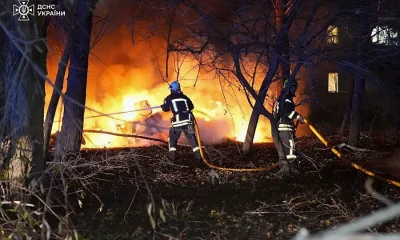
 International5 days ago
International5 days agoMore than 20 dead and a hundred injured in several missile attacks against residential areas of Odessa and Sumi
-
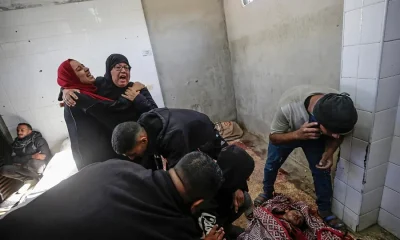
 International5 days ago
International5 days agoThe number of deaths rises to 111 in Gaza in one of the most violent days of the month
-
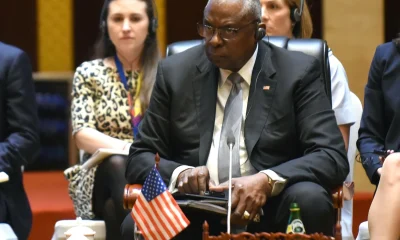
 International2 days ago
International2 days agoThe US claims that China has rejected a meeting between its Defense chiefs in Laos
-
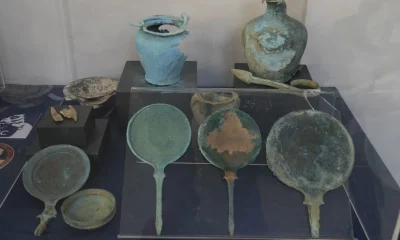
 International3 days ago
International3 days agoEtruscan artifacts targeted in black market scheme uncovered in Umbria
-

 Tecnología3 days ago
Tecnología3 days agoAI chip industry shifts focus as Nvidia faces new competition
-
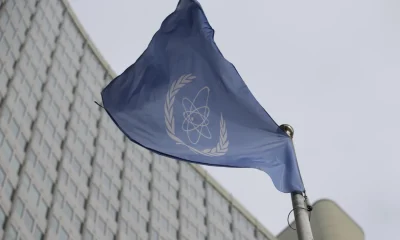
 International3 days ago
International3 days agoIran expands uranium stockpile to near weapons-grade levels
-
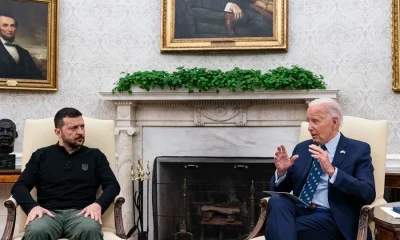
 International5 days ago
International5 days agoThe Kremlin accuses the United States of throwing “firewood” by authorizing Ukraine to use long-range missiles
-
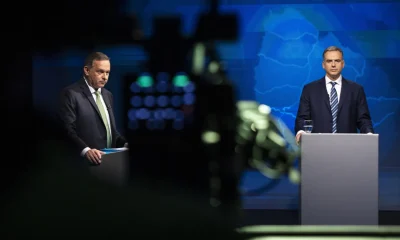
 International5 days ago
International5 days agoThe presidential candidates in Uruguay promised in a debate not to raise taxes
-
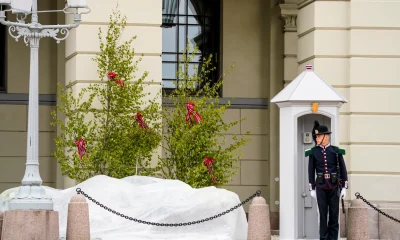
 International2 days ago
International2 days agoOne-week preventive detention for Princess Mette-Marit’s son of Norway for rape
-

 International2 days ago
International2 days agoThe next attorney general Matt Gaetz manages to stop the report on his sex scandal
-
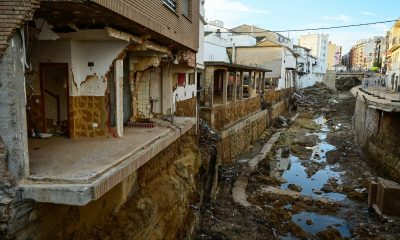
 International1 day ago
International1 day agoIMF: Spain’s economy remains resilient despite devastating floods
-
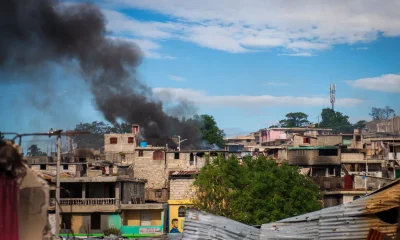
 International2 days ago
International2 days ago85% of Haiti’s capital has fallen into the power of gangs, according to UN reports
-
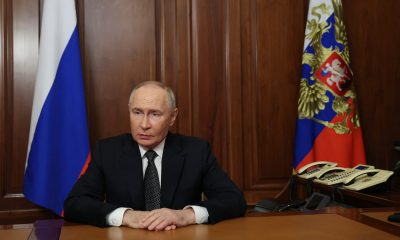
 International1 day ago
International1 day agoPutin warns of escalation, suggests strikes on western weapon suppliers
-
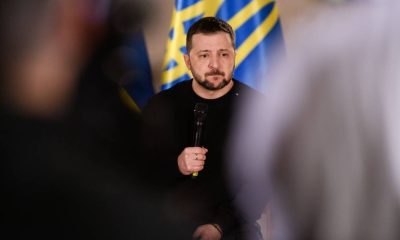
 International1 day ago
International1 day agoZelenski urges global action after russian ballistic missile strike
-

 International1 day ago
International1 day agoElon Musk plans sweeping cuts to U.S. bureaucracy and spending
-
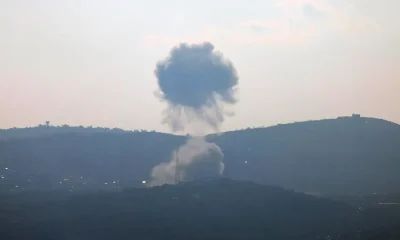
 International1 day ago
International1 day agoLebanon reports deadly airstrikes: 40 killed in Bekaa, 12 in southern regions
-
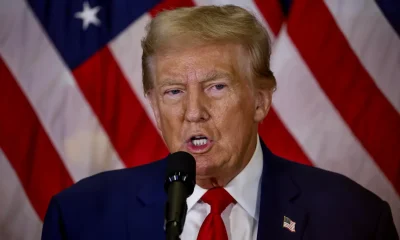
 International10 hours ago
International10 hours agoTrump appoints new members to his government cabinet
-
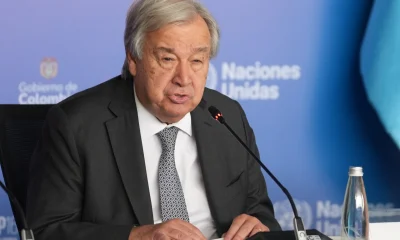
 International5 days ago
International5 days agoAntónio Guterres asks G20 leaders to “take a step forward” for peace in Ukraine and Gaza
-

 International1 day ago
International1 day agoTrump appoints Pam Bondi as future U.S. attorney general
-

 International1 day ago
International1 day agoMatt Gaetz withdraws from attorney general nomination amid political tensions
-

 International10 hours ago
International10 hours agoTrump chooses the members of his government in charge of health and epidemics in the US
-
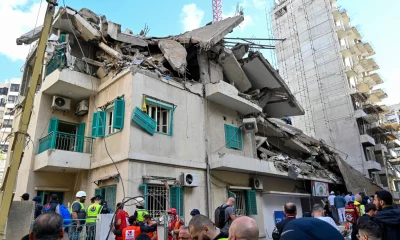
 International5 days ago
International5 days agoHezbulá regrets the death of its spokesman in an Israeli bombing in Beirut
-
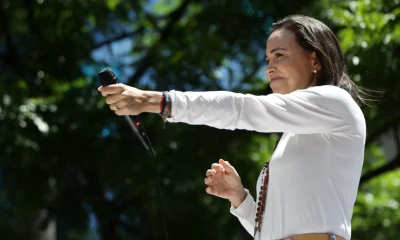
 International10 hours ago
International10 hours agoThe Venezuelan Prosecutor’s Office investigates María Corina Machado for supporting a law approved in the US House of Law
-
International10 hours ago
Government paves the way for ‘Gordo Dan’, from the “armed arm of Milei”, to be a candidate




















